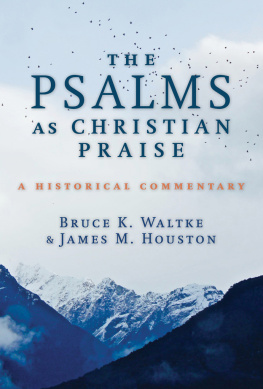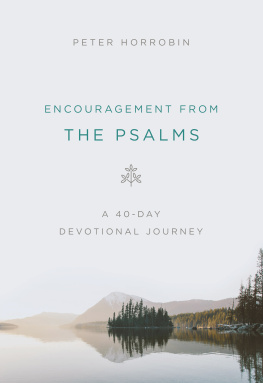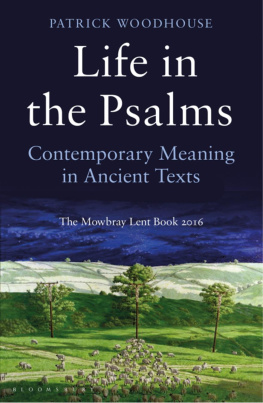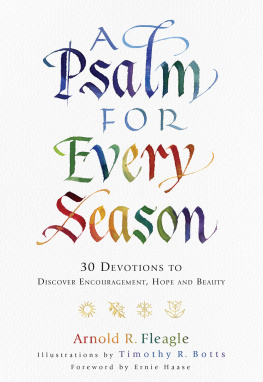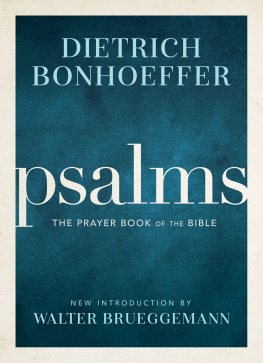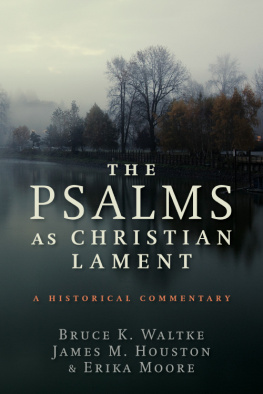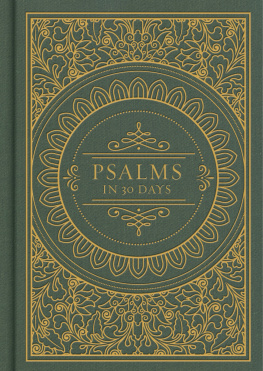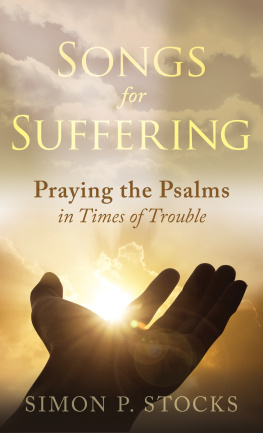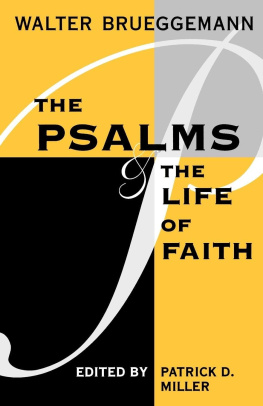lasting hope
DEVOTIONS FOR LENT 2019
AUGSBURG FORTRESS
Minneapolis
LASTING HOPE
Devotions for Lent 2019
Copyright 2018 Augsburg Fortress. All rights reserved. Except for brief quotations in critical articles or reviews, no part of this book may be reproduced in any manner without prior written permission from the publisher. Visit http://www.augsburgfortress.org/copyrights or write to Permissions, Augsburg Fortress, Box 1209, Minneapolis, MN 55440.
Psalms quotations for each day are from Evangelical Lutheran Worship, copyright 2006 Evangelical Lutheran Church in America.
Other scripture quotations are from the New Revised Standard Version Bible, copyright 1989 by the Division of Christian Education of the National Council of the Churches of Christ in the USA. Used by permission. All rights reserved.
References to ELW are from Evangelical Lutheran Worship, copyright 2006 Evangelical
Lutheran Church in America.
pISBN 978-1-5064-4776-6
eISBN 978-1-5064-4777-3
Writers: Mary Hinkle Shore (March 616), Ron Valadez (March 1723), Nathan Hilkert (March 2430), Christina Garrett Klein (March 31April 6), Bekki Lohrmann (April 713), Kevin L. Strickland (April 1420)
Editor: Laurie J. Hanson
Cover image: Tamie Steffen-Hornstein, www.tamiehornstein.com
Cover design: Laurie Ingram
Interior design: Eileen Engebretson
Typesetting: Erin Keeffer
The paper used in this publication meets the minimum requirements of American National Standard for Information SciencesPermanence of Paper for Printed Library Materials,
ANSI Z329.48-1984.
Manufactured in the U.S.A.
19 18 1 2 3 4 5 6 7 8 9 10
Contents
The book of Psalms gives us a realistic look at the journey of faith for individuals and a community. From crying for help to singing songs of praise and thanksgivingand everything in betweenthe psalms show faith with all its ups and downs, twists and turns.
More importantly, the book of Psalms points us to God. During times of celebration as well as suffering, loss, and lament, the psalm writers turn to God and remember Gods promisespromises kept and promises still unfolding. Gods faithfulness to these promises creates a durable, lasting hope in the psalmists and in the Israelite community.
Lasting Hope explores psalms assigned to Ash Wednesday, Sundays in Lent, and Holy Week in this liturgical year (year C of the Revised Common Lectionary).
- Psalm 51 (March 6 through 9)
- Psalm 91 (March 10 through 16)
- Psalm 27 (March 17 through 23)
- Psalm 63 (March 24 through 30)
- Psalm 32 (March 31 through April 6)
- Psalm 126 (April 7 through 13)
- Psalms 31, 116, 22, and 98 (April 14 through 20)
May Jesus, Gods promised one, be with you on this Lenten journey and fill you with lasting hope.
Psalm 51:1-2
Have mercy on me, O God,
according to your steadfast love;
in your great compassion
blot out my offenses.
Wash me through and through
from my wickedness,
and cleanse me from my sin.
To ponder
God does not wish to regard our sins and punish us as we daily deserve but to deal graciously with us, to forgive according to Gods own promise, and thus to grant us a joyful and cheerful conscience so that we may stand before God in prayer....But such a confident and joyful heart can never come except when one knows that ones sins are forgiven.Martin Luther, The Large Catechism
We begin with grace
Psalm 51 is traditionally known as King Davids response after the prophet Nathan revealed to him the harm he had done to Bathsheba and her husband, Uriah. Like David, we often do not recognize an action as sin until someone shows us another perspective on it. Then we realize we were not just blowing off steam harmlessly: a friend was frightened by our outburst. We did not simply borrow that money: we took it without permission and have no idea how we will pay it back. That constant comparison of ourselves to a colleague who seems to have it all has turned into something toxic for both of us. Behavior we might once have glossed over is dangerous and powerful. It has the potential to shred loving connections with God and our neighbor.
When we realize such things, Psalm 51 gives us words to speak about them. In the first verse, we speak of Gods grace three ways: as mercy, steadfast love, and great compassion. When we know God to be gracious, we have the courage to go forward. We can tell the truth and ask forgiveness.
Prayer
Most merciful God, help us to trust in your compassion and steadfast love. Free us from sin and raise us to new life. Amen.
Psalm 51:10
Create in me a clean heart, O God,
and renew a right spirit within me.
To ponder
Heart and spirit. Here were saying we want our inner core, our inside selves, to change anew. We know our sin is deep. And thus, we pray that the healing will be deep. Nothing like a little change, a New Years resolution, a quick resolve in the morning breakfast to make this a better day. Nothing like this will or can do the job we need. The healing needs to go much deeper.
Thats why we say and pray: Create, create, create. We mean just that: CREATE!Timothy Weber, Mercy and Our Many Selves
A future with hope
We often focus on the past when we ask for forgiveness. We call to mind things done and left undone, and we express sorrow to God or to those we have wounded. This focus on what is past, with its fearless truth-telling, begins the healing we seek, but it is only part of the picture. The future depends on Gods re-creation.
Just as it is in Gods nature to show mercy, so it is in Gods nature to create. In the Old Testament, the Hebrew word for create used in Psalm 51:10 always refers to the activity of God. The One who created humanity in that Ones image continues to share the divine life with human beings. The Creator fashions us anew to give us a future different from one shaped by our sin. God forgives. God does not allow our sin to set the trajectory of our future and the future of those we have hurt. Create in me a clean heart, we pray. We are asking the God who made us to make us new.
Prayer
O God, we long to be what you meant us to be all along. Create us anew, that we may bear your image faithfully and share your creative spirit with the world. Amen.
Psalm 51:11-12
Cast me not away from your presence,
and take not your Holy Spirit from me.
Restore to me the joy of your salvation
and sustain me with your bountiful Spirit.
To ponder
A willingness to forgive is clearly the mark of a humanity touched by Godfree from anxiety about identity and safety, free to reach out into what is other, as God does in Jesus Christ. But it may be that a willingness to be forgiven is no less the mark of a humanity touched by God. It is a matter of being prepared to acknowledge that I cannot grow or flourish without restored relationship, even when this means admitting the ways I have tried to avoid it, admitting sin. When I am forgiven by the one I have injured, I accept both that I have damaged a relationship, and that change is possible.Rowan Williams,


